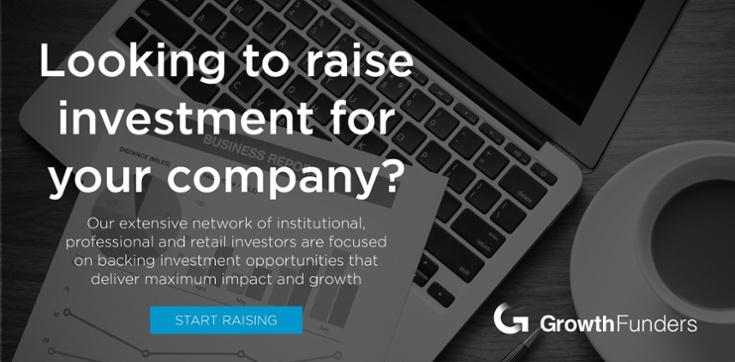Why investors won't invest in your startup
As you make the decision to move forward from bootstrapping your business and raise pre-seed or seed funding for your startup, it’s important to prepare properly.
Attracting investment isn't as easy as just asking people for money. Your business has to be in the best possible shape - it has to be investor-ready.
Below, you'll find links to some articles I've gathered together which offer a multitude of reasons why investors won’t invest in your start up.
6 Signs No One Is Going To Fund Your Startup
Lucas Calson
Calson’s main message is that although you may want investment, your start up doesn’t automatically “deserve” it. The word “deserve” here is used in terms of how much high growth potential the business shows.
Most investors are looking for the “next big thing”; something which will give them a fantastic return on their investment. Some businesses can deliver this and others can’t, what separates one from the other is their potential (which is made up of any number of elements, including the team, revenue streams, exit strategy, and ability to understand what the customer wants).
My favourite point from this post was: “You don’t deeply understand your customers: often a founder thinks an idea is clever and doesn’t evaluate it further.”
If an idea doesn’t eventually benefit a paying audience, it isn’t a great idea in an investor’s eyes. You need to have a (potential/target) customer base for your product or service, because if you don’t, who will buy or use it? Meaning, where will your money come from, how will your business grow, and when will an investor receive his ROI?
10 Good Reasons Not to Seek Investors For Your Startup
Tim Berry
Whilst this article focuses on the pros of bootstrapping rather than seeking investment, one point which stuck out for me and is relevant to this post was the idea that “if it’s not scalable, forget it”.
Similarly to the previous post, most investors are interested in their ROI. Therefore, when building their portfolios, they look specifically for businesses which are scalable and show high growth potential. If yours isn’t or doesn’t, it most likely will not attract investment.
Click here to read the full article.
10 Reasons You’ll Never Raise A Dime For Your Startup
Eric T. Wagner
Wagner works as a mentor at an online entrepreneurship academy and has met countless entrepreneurs who struggle to find/raise the funding they need to set up their startup. As he says, regardless of how you decide to raise finance: an equity crowdfunding platform, VC fund, or a bank, there are a list of common reasons investors will choose to avoid your investment opportunity.
My favourite from this list was number 7: “You’re not coachable”. Believing in yourself and your business or idea is fantastic, but doing so to the point where you refuse to listen to outside feedback could damage your growth and investment potential. Being passionate is not the same as ignoring sound suggestions from sector experts.
Why Business Plans Don't Get Funded
Akira Hirai
Although this piece focuses on why business plans don’t get funded, as oppose to businesses “full stop”, for a lot of investors, the Business Plan is one of the first points of contact they will have with you and your start up.
Something we hear regularly from businesses owners is the claim, "We have no competition". As Hirai writes, “To say that you have no competition is one of the fastest ways you can get your plan tossed - investors will conclude that you do not have a full understanding of your market.” Remember - competition is proof that a real market exists.
Competition doesn’t just come in the form of direct, but also indirect and replacement/substitute, too. I recently wrote a post on the different types of competition your business is facing, which you can read here.
Click here to read the full post.
16 Reasons Why They Will Not Invest In Your Startup!
Ahmed Mohsen
This post has some great suggestions for things which will discourage potential investors. The one which caught my eye straight away was number 11: “Lack of interest from OTHER investors”, which is why you should have primed your own network/customers/user base prior to thinking about raising capital.
If you start to build interest in advance, your own network can get involved, showing that the fund raise has momentum, and this can often help you unlock further funding from angels and VCs.
No one wants to be “the first” to put their money in, but if they see that you have traction from your own network (which can include friends, family, and customers) they will be more likely to take a closer look at your offering. We talk about this more here.
25 Reasons I Will Not Invest in Your Startup
John Rampton
Rampton speaks from experience and delivers a number of excellent points, including the importance of getting the valuation of your business right. As he says, “Figuring out the value of your startup can be a challenge” but if you believe the company to be worth ten times more than an investor does, he will most likely look for something else.
When calculating the value of your business, it is good to base it on both the past and potential future, as well as other similar businesses. We offer you some pointers in this post.
If you’ve tried to raise capital previously and have been unsuccessful for a reason not covered here, please let us know what it was by leaving a comment at the bottom of the page and help other entrepreneurs steer clear of the same mistakes.
%20(3)%20(2).jpg)








